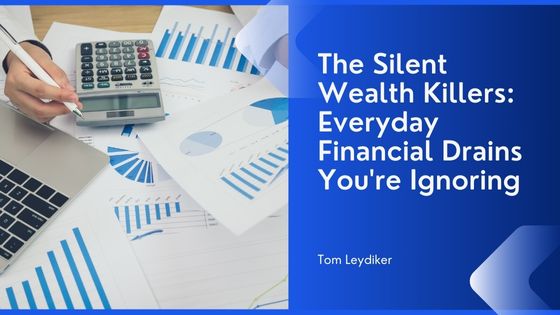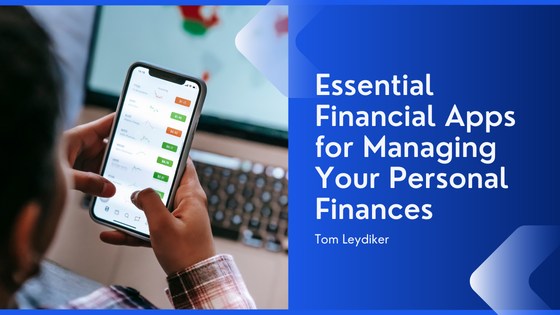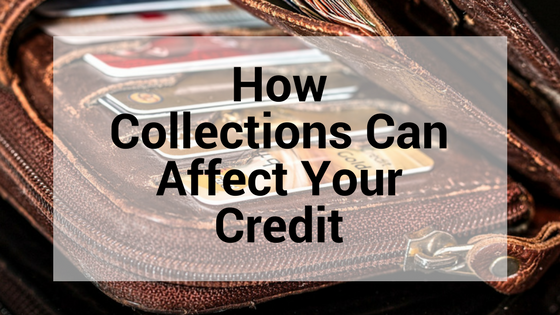In the pursuit of financial independence, we often focus on the grand strategies—investing in the right stocks, maximizing our 401(k) contributions, or hunting for the perfect real estate opportunity. Yet while we’re occupied with these big-picture moves, insidious wealth killers operate quietly in the background, draining our financial potential one small transaction at a time.
These silent wealth killers aren’t dramatic or obvious. They’re the financial equivalent of a slow leak—barely noticeable in isolation but devastating in aggregate. What makes them particularly dangerous is how easily they disguise themselves as normal, acceptable parts of modern financial life.
Consider the subscription creep phenomenon. What begins as a single streaming service gradually expands into a portfolio of monthly subscriptions—streaming video, music, news, productivity apps, meal kits, clothing boxes, and specialized services for every interest. Individually, each might seem reasonable at $9.99 or $14.99 per month. Collectively, they can silently extract hundreds of dollars monthly from your accounts.
A recent financial behavior study found that the average American vastly underestimates their subscription spending by 143%. When asked to estimate monthly subscription costs, most participants guessed around $80, while their actual spending averaged $193. That’s a $1,356 annual difference between perception and reality.
Equally pernicious is the banking fee ecosystem that most consumers have been conditioned to accept. Maintenance fees, ATM charges, overdraft penalties, foreign transaction surcharges, and wire transfer costs aren’t just annoying financial speed bumps—they’re systematic wealth transfers from your accounts to financial institutions. The average American household pays $329 annually in bank fees, with that figure nearly doubling for those who occasionally overdraft.
Consider this stark reality: $329 invested annually for 30 years at a modest 7% return would grow to approximately $33,000. That’s a decent car or a significant portion of a college education, sacrificed to fees that could be largely avoided through more attentive financial management.
Perhaps the most insidious wealth killer lurks in our everyday shopping habits. The convenience premium—paying significantly more for essentially the same products or services due to laziness, poor planning, or status-seeking—silently erodes wealth building potential. This manifests as:
- Paying 300% markup for coffee shop visits versus brewing at home
- Last-minute grocery shopping at convenience stores versus planned trips to lower-cost supermarkets
- Impulse purchases triggered by strategic store layouts and digital marketing
- Brand loyalty without price comparison
- Delivery fees and surcharges for minor conveniences
The financial impact of these convenience choices compounds dramatically over time. Someone who spends $5 daily on coffee shop visits versus $0.50 for home-brewed coffee isn’t just spending $4.50 extra daily—they’re sacrificing over $46,000 across 20 years, assuming that money had been invested with modest returns.
Impulse purchasing presents another particularly dangerous wealth killer because it operates at the intersection of emotion and sophisticated marketing science. Retailers and online platforms have perfected psychological triggers that bypass rational decision-making, leading to unplanned spending that feels good momentarily but creates no lasting value.
The average American makes three impulse purchases weekly, totaling approximately $5,400 annually. For perspective, that’s enough to fully fund a Roth IRA for most eligible participants, potentially growing to $500,000 or more over a 30-year career with consistent contributions.
These wealth killers share a common trait: they rely on financial autopilot—the tendency to make recurring financial decisions with minimal conscious thought. Breaking free requires developing systems that introduce friction and consciousness into these transactions:
- Conduct a subscription audit quarterly, requiring each service to justify its continued cost
- Configure automatic alerts for any transaction under $20, bringing consciousness to small purchases
- Implement a 24-hour rule for non-essential purchases
- Switch to financial institutions that minimize or eliminate common fees
- Pre-commit to specific shopping parameters before entering stores or browsing online
- Calculate the “true hourly cost” of convenience purchases (your hourly wage versus time saved)
Perhaps most importantly, recognize that these wealth killers aren’t just financial issues—they’re often manifestations of deeper psychological patterns. The person who consistently pays convenience premiums may be overvaluing their time or avoiding discomfort. The subscription hoarder might be seeking identity validation through consumption. The impulse shopper could be using purchases as emotional regulation.
Addressing these underlying patterns often yields benefits beyond financial improvement. Many people report greater overall satisfaction when they reduce unconscious spending, as it typically leads to more intentional choices aligned with deeper values.
The battle against wealth killers isn’t about deprivation—it’s about consciousness. By bringing awareness to these silent drains and implementing systems to manage them, you reclaim not just money but agency over your financial future. And unlike many financial strategies that require substantial capital to implement, fighting wealth killers is accessible to everyone, regardless of income or net worth.
What silent wealth killers are operating in your financial life right now? The answer might reveal your greatest opportunity for financial transformation.




